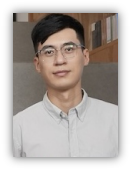
2026 7th International Conference on Machine Learning and Computer Application(ICMLCA 2026)
Speakers
| Assoc. Researcher Ruxin Wang Shenzhen Institute of Advanced Technology, Chinese Academy of Sciences, China Bio: TItle: Abstract: |
To be determined ... | |
